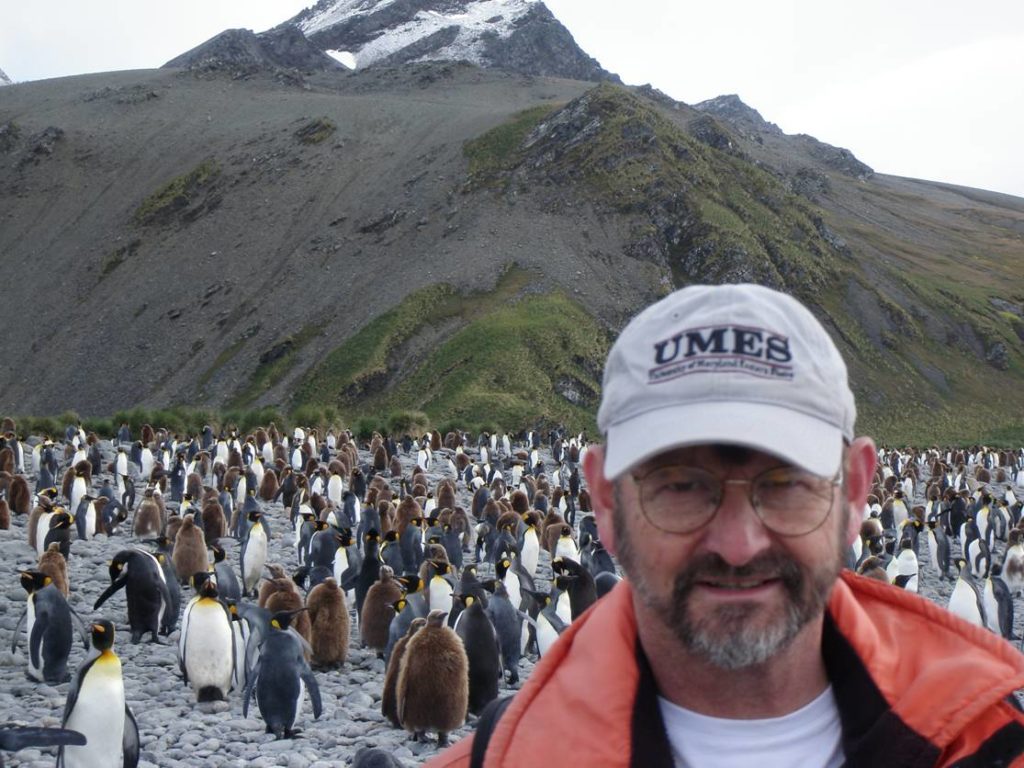
Wednesday, January 25, 2012
PRINCESS ANNE, MD. – (Jan. 26, 2012) – While hundreds of Delmarvans participated in the annual “Penguin Swim” in Ocean City New Year’s Day, a UMES professor spent the holiday with the real flightless birds that live at the bottom of the world.
Dr. T. H. Baughman delivered guest lectures and served as an adviser to an “eco-tour” group that visited Antarctica during the winter break in classes at the University of Maryland Eastern Shore.
Baughman estimates he’s made the trip some two dozen times to explore a frontier that has fascinated him for four decades. He first visited Antarctica in the early 1970s as a member of a scientific staff led by noted glaciologist Ian Whillans.
A history professor who has published four books about daring polar explorers, Baughman delivered lectures on the early 20th-century “Heroic Era” for guests aboard an expedition cruise ship that took them to the White Continent.
For Baughman, the trips this time of year help him visualize what early explorers encountered and experienced – at least during the warm season south of the equator.
“It really brings authenticity to one’s writing to visit the places you are writing about,” he said.
Depending on the subjects he is assigned to teach, Baughman incorporates material he gathers from his on-board experiences. Passengers on these excursions, Baughman notes, are often widely experienced and successful people who offer insights in life not readily available to college professors.
While the Antarctic landscape is rugged and dramatic, opportunities abound to see seals, penguins, albatrosses and other wildlife on the continent, the island of South Georgia as well as the Falkland Islands.
Daytime temperatures in the summer along the Antarctic Peninsula generally reach into the 30s, although they can dip below freezing at night. While some of the ice and snow cover has melted, visitors still encounter plenty of it to get an idea of how harsh the environment there is.
Also on the trip were Peter Harrison, a leading authority on seabirds, geologist Geoffrey Renner and marine biologist Rick Price, both veteran Antarctic scientists. They and Baughman presented a series of academic-style lectures aboard ship as well as commentary on shore to enhance the educational opportunity for passengers. Baughman said this type of hands-on eco-tourism draws enthusiasts from across the U.S. and Europe.
President Eisenhower’s vision a half-century ago led to the establishment of international control over Antarctica. Consequently, eco-tourists have had an important positive impact on it by demanding cleaner and more ecologically sensitive practices by scientists and support staff.
Once they return home, passengers often become unofficial ambassadors for the preservation of the pristine nature of the region, Baughman said.
“Although potentially rich in resources, Antarctica’s greatest treasure is the beauty and mystery which its landscape evokes,” he said. “Once people see it, they remain to a real extent under its spell.”Bill Robinson, director, UMES Office of Public Relations, 410-621-2355.

